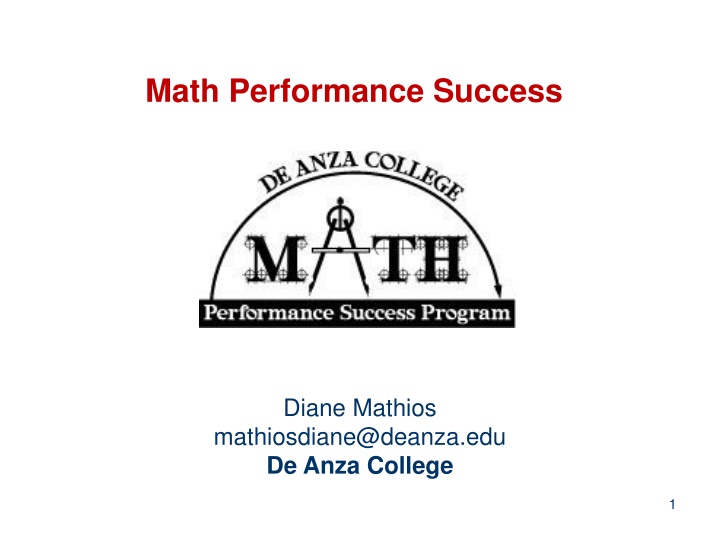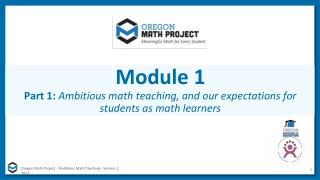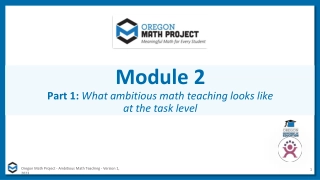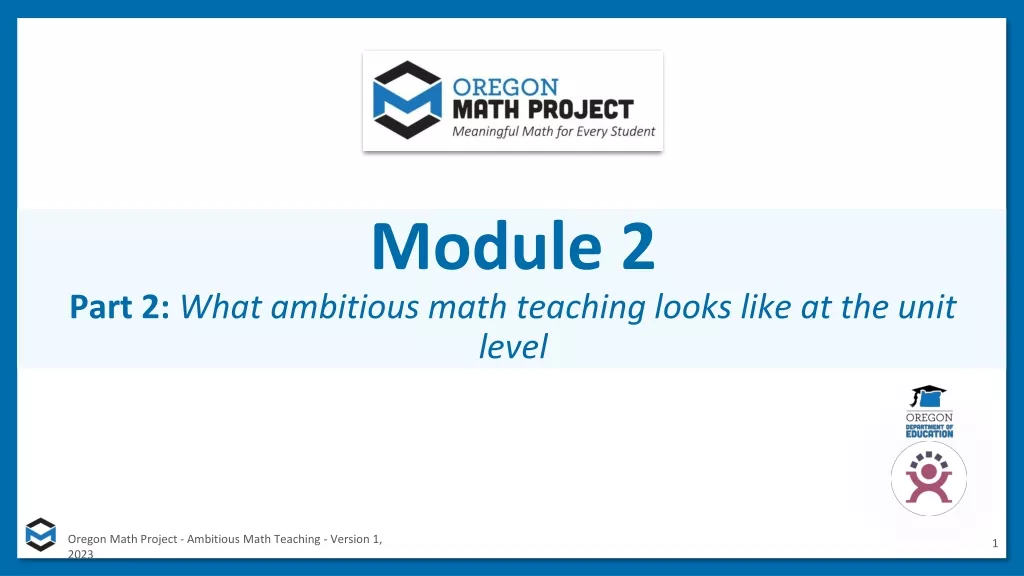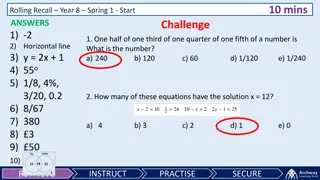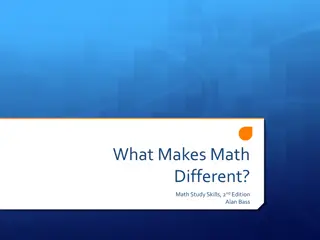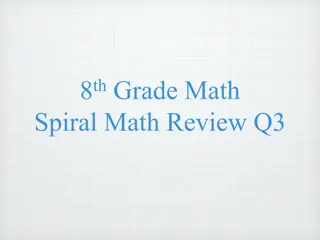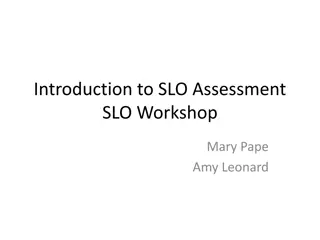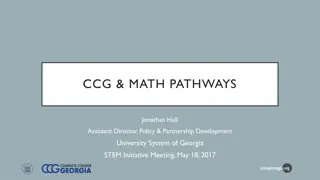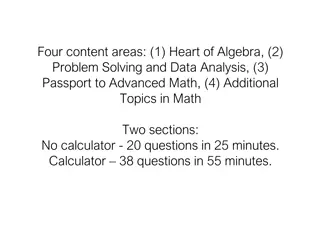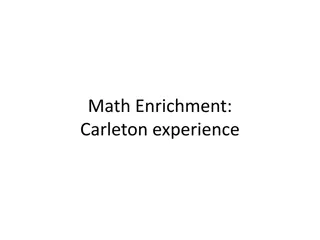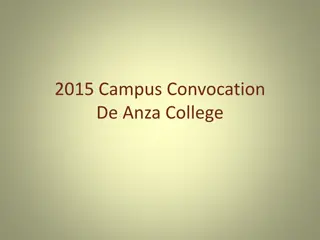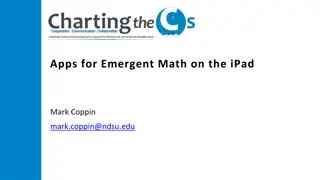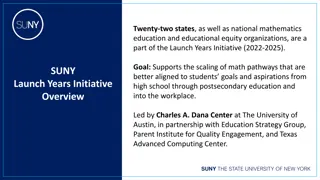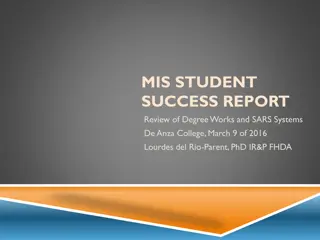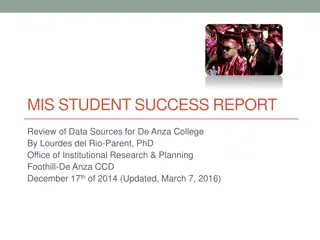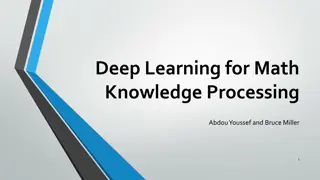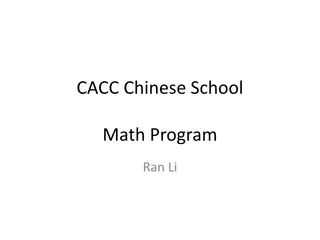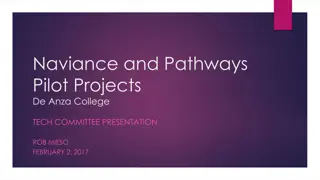De Anza College Math Performance Success Program
Addressing challenges in developmental math, the De Anza College Math Performance Success Program offers intensive student services through a cohort approach with common curriculum and faculty. The program provides double class time for high-risk students, emphasizing a team approach, program structure, student cohorts, counseling, active learning, and peer tutors. It aims to support high-risk students lacking success in math while building their confidence and fostering academic and personal growth through counseling, application processing, program orientation, student contracts, and explicit expectations. Cohorts follow year-long sequences in elementary algebra, intermediate algebra, and statistics, promoting a sense of community and lasting relationships among students and instructors. With student tutors available daily for in-class support and drop-in sessions, the program encourages individual attention, study groups, and mandatory tutoring for students with grades below 70%. Active learning techniques such as in-class practices, group work, small group discussions, and collaborative learning enhance student engagement. The program's double time commitment of 10 hours per week allows for flexibility to cater to student needs effectively.
Download Presentation

Please find below an Image/Link to download the presentation.
The content on the website is provided AS IS for your information and personal use only. It may not be sold, licensed, or shared on other websites without obtaining consent from the author.If you encounter any issues during the download, it is possible that the publisher has removed the file from their server.
You are allowed to download the files provided on this website for personal or commercial use, subject to the condition that they are used lawfully. All files are the property of their respective owners.
The content on the website is provided AS IS for your information and personal use only. It may not be sold, licensed, or shared on other websites without obtaining consent from the author.
E N D
Presentation Transcript
Math Performance Success Diane Mathios mathiosdiane@deanza.edu De Anza College 1
Developmental Math challenges Low Success Low Progression Rate Not Reaching Educational Goals 2
De Anzas Solution Math Performance Success (MPS) Program: Intensive Student Services Cohort Approach Common Curriculum Common Faculty 3
Double Class Time High Risk Students Team Approach Program Structure Student Cohorts Counseling Active Learning Peer Tutors 4
Program Structure High Risk Students Lack of Success in Math Low Math Self-confidence Many from Special Programs Learning and Physical Disabilities Under-represented Groups Low Income Referrals from Instructors & Counselors 5
Program Structure Counseling Application Processing Program Orientation Student Contract Explicit Expectations Noncompliance Termination Frequent Counseling Intervention Academic & Personal Student Success Workshops 6
Program Structure Cohorts Year-long sequences Elem. Alg. Interm. Alg. Statistics Pre-Alg. Elem. Alg. Interm. Alg. Start Any Quarter Sense of Community Same Instructor Lasting Relationships Student-Student Instructor-Student 7
Program Structure Student Tutors In-class: Daily, with Consistent Tutors Drop-in Available: 50 hours/week Individual Attention Encourages Study Groups Mandatory Tutoring when Grades < 70% at Any Point in Term Many Tutors are Former MPS Students 8
Program Structure Active Learning In-class Practice Group Work Small Group Discussion Collaborative Learning 9
Program Structure Double Time 10 Hours per Week (5 units) Double Load for Instructor Allows Flexibility to Meet Student Needs 10
Program Structure Team Approach Instructors, Counselors, Administrators, Advisors, Tutors Weekly Team Meetings Deepens Working Relationships 11
Student testimonial School-wise MPS is the best thing that has happened in my life. Math is a difficult subject, but thanks to the professor, tutors, and counselors, I am completing my math requirements for my major. The teachers and tutors really make math a lot less complicated and make it somewhat fun. I strongly recommend the program to students that don t have a strong background in math. - Saul Gembe 13
Student testimonial When I first started out, I had no idea how intense the class was going to be. The labs, Homework, projects, exams, quizzes, etc were overwhelming to me, but, as the weeks went by I understood why all this was necessary. I began to understand why and how things in the program worked. I was no longer overwhelmed and felt confident again that I am smart enough for math. - Emily Ikuta 14
Student testimonial The MPS Program has definitely helped me understand Math. In the past, it was very difficult to grasp different concepts. Now, I find myself at times helping other people with it. - Godfrey Ramos 15
Cumulative Data: 2001 2010 Non-MPS MPS n Pass n Pass Diff Pre-Algebra 1980 55% 126 73% 18% F: 06-09 Elem. Algebra 9945 56% 823 77% 21% F: 01-09, W: 07-10 Inter. Algebra 9419 58% 850 82% 24% W: 02-10, S: 07-09 Statistics 7899 62% 626 90% 28% S: 02-09, F: 08 16
Success Rates by Ethnicity 2009-10 and 2010-11 Pre-Algebra 70 60 50 40 MPS non-MPS 30 20 10 0 All Under-rep African Am Hispanic
Success Rates by Ethnicity 2009-10 and 2010-11 Elementary Algebra 80 70 60 50 MPS non-MPS 40 30 20 10 0 All Under-rep African Am Hispanic
Success Rates by Ethnicity 2009-10 and 2010-11 Intermediate Algebra 100 90 80 70 60 MPS non-MPS 50 40 30 20 10 0 All Under-rep African Am Hispanic
Percent Success by Ethnicity 2009-10 and 2010-11 Statistics 90 80 70 60 50 MPS non-MPS 40 30 20 10 0 All Under-rep African Am Hispanic
Instructors Growth Coordination Challenges Politics Counseling Facilities 24
Challenges Instructors Must Commit to Cohort for Year Emotionally Exhausting Requires More Preparation Extra Activities Recruitment 25
Challenges Coordination Student Recruitment and Registration Availability of Staff for Weekly Meetings Extensive Commitment for Adjunct Faculty Tutor Recruitment & Training Collaboration Among Counselors, Tutors & Faculty 26
Challenges Counselors Recruitment & Reluctance Dilution of Services High Demand, Low Supply 27
Challenges Facilities Rooms for Double Time Shortage of Classrooms on Campus More Accommodations for Special Needs Students 28
Challenges Politics Conflicting Philosophies Resource Distribution 29
Challenges Growth Exacerbates Existing Challenges Recruitment and Training Increased Complexity in Coordination Cost Requires Cultural Change across Institution 30
Benefits Successful Students Enriched College Experience Moral & Ethical Reasons Program Components Applicable to Other Developmental Disciplines 31
Recognition and Support 2002 CCC Senate Exemplary Program 2009 Cited as Exemplary Program by CA s Basic Skills Initiative 2009 Recipient of Hewlett Foundation Award Partially Supported by Title III Grant Financially Supported by De Anza Student Body
Implementing at Your Institution Educate Everyone - Instructors - Student Body - Grant Funders - Counselors - Administration Maintain, Analyze and Share Data Start Small 33
Resources Math Performance Success (MPS): http://nebula.deanza.edu/PSME_Division/MPS.html CA Basic Skills Initiative: http://www.cccbsi.org/literature-review Contact Us: MathiosDiane@deanza.edu HernandoHerminio@deanza.edu RosenbergJerry@deanza.edu 34
